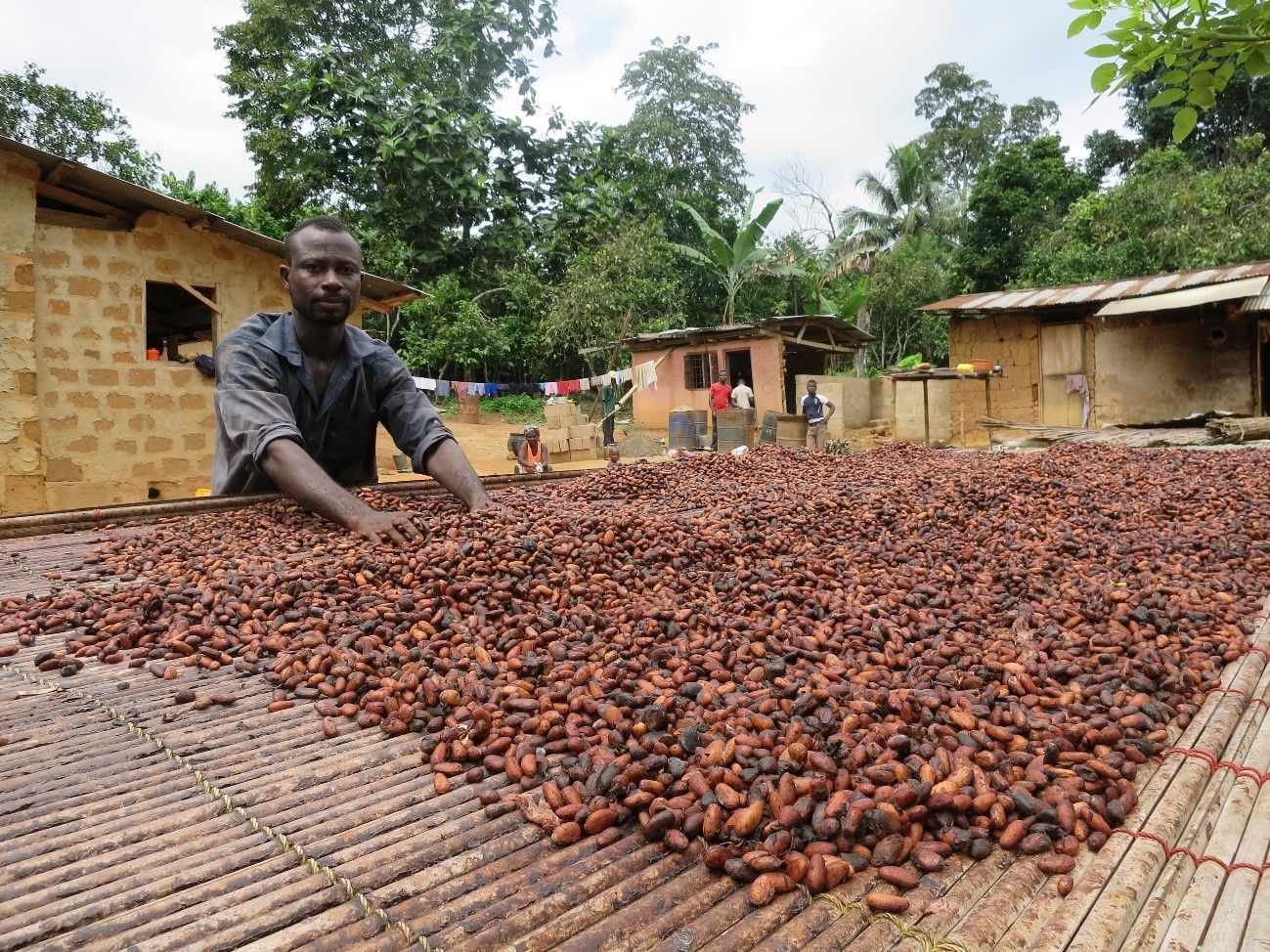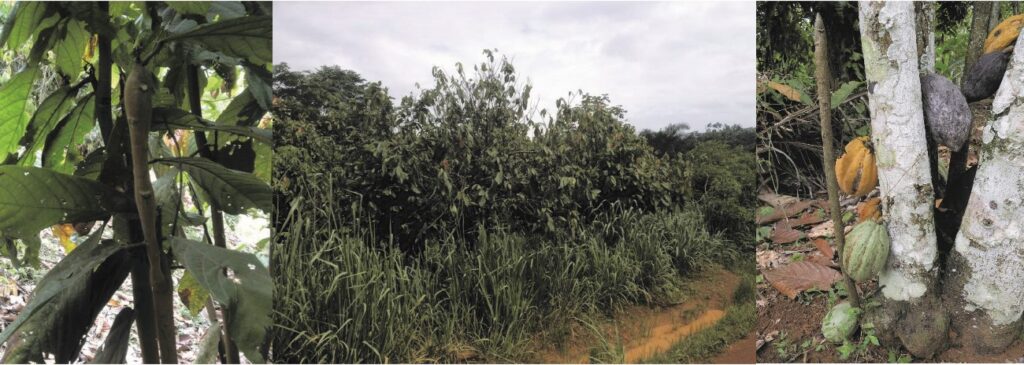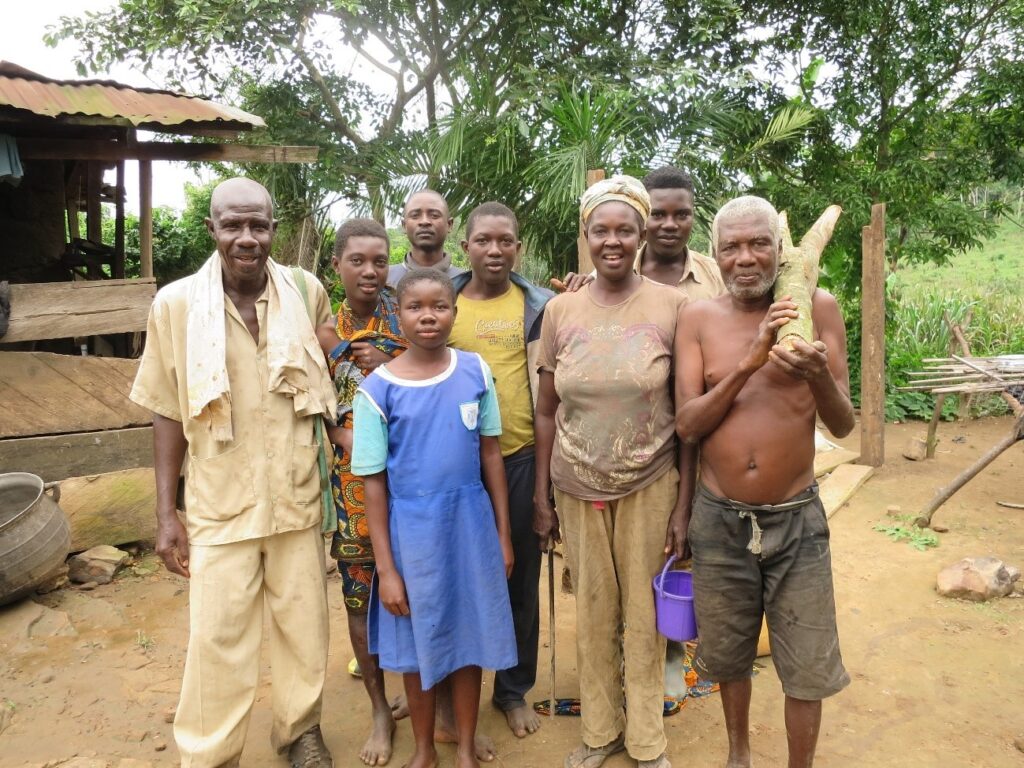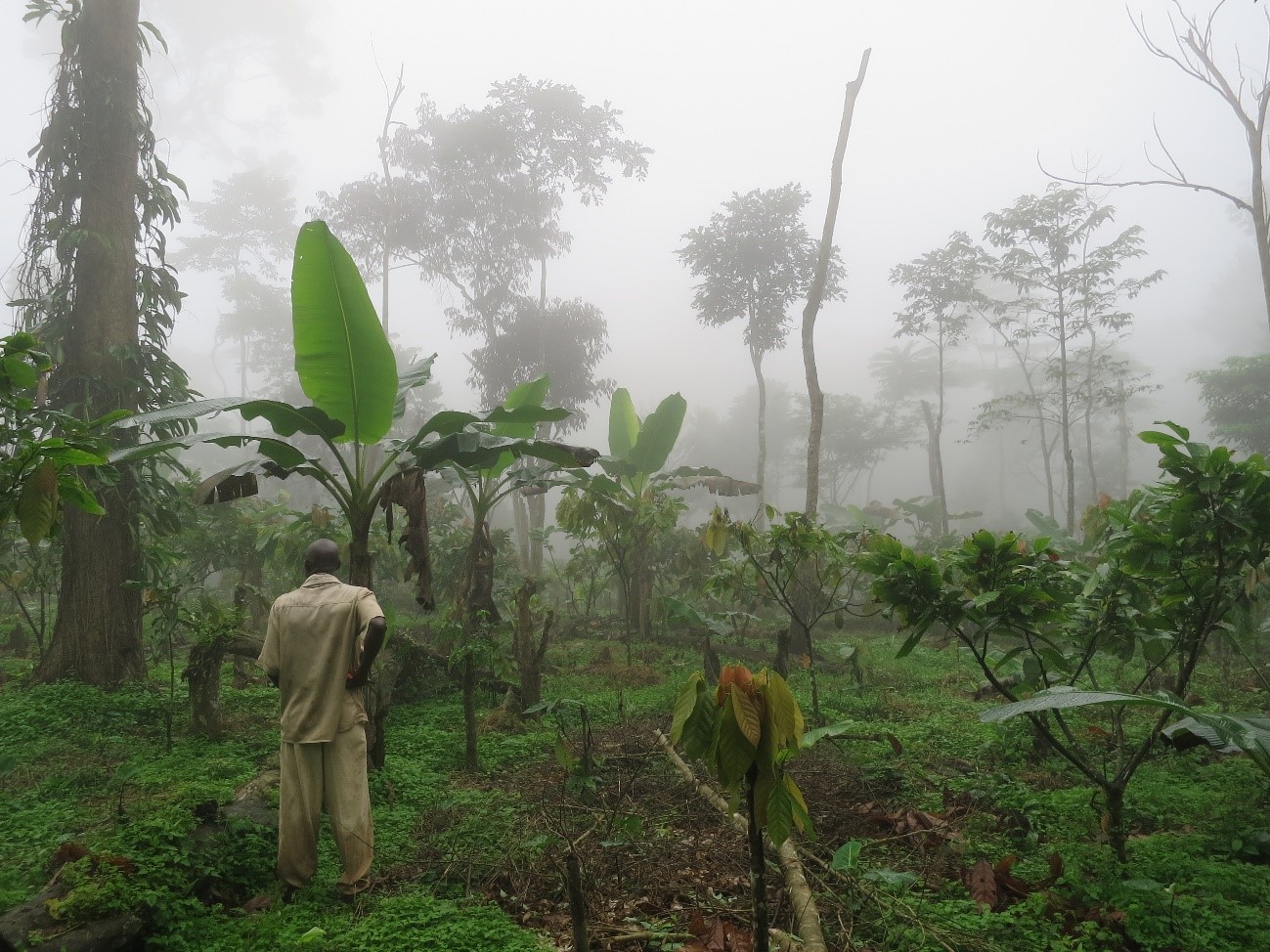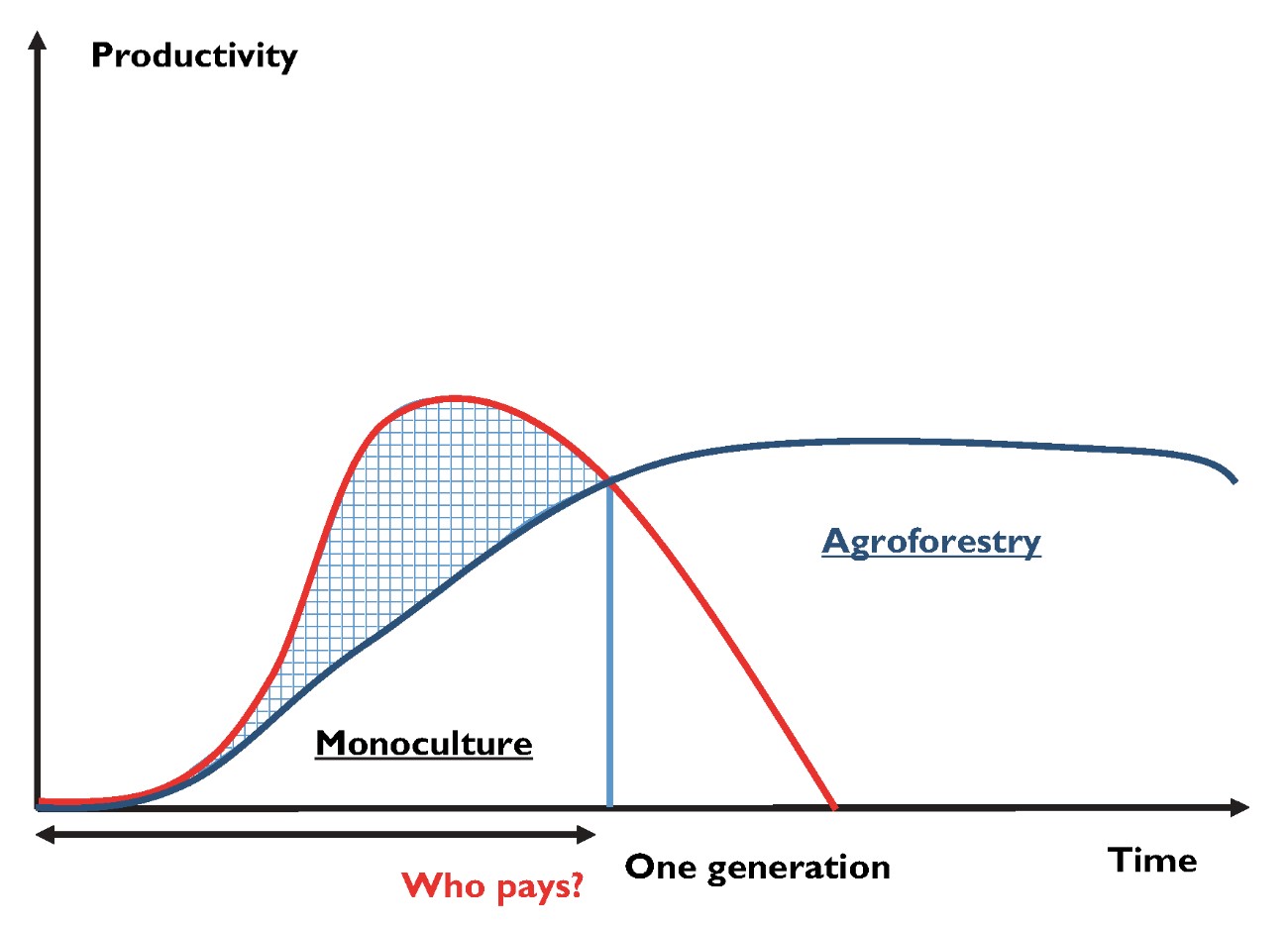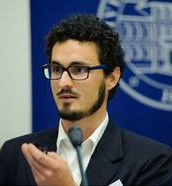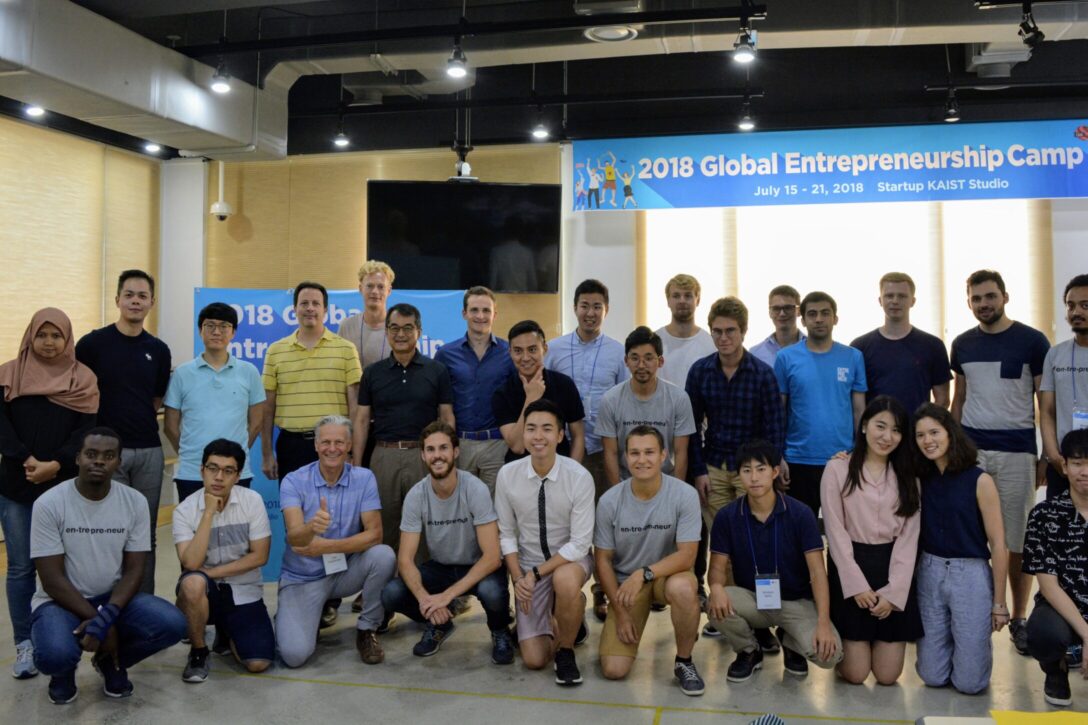While we enjoy the bittersweet flavors and smooth textures as they melt on our tongues, the seductive power of chocolate faces a crisis of sustainability.
Challenges with Sustainability
However amazing our fantasies of chocolate might be, the world of chocolate is facing a big threat: the sustainable supply of cocoa beans, the raw material needed to produce chocolate goods, is at stake. Cocoa beans come from a fragile tree – Theobroma cacao L. Displaced from its natural environment in the dense, humid Amazon rainforest to the full sunlight of monocultures in West Africa, the tree is exhausted. The sudden exposure of the trees accelerated their photosynthesis overstraining them like never before. Just like a mouse on an exercise wheel, the trees went into full speed, producing unsustainable high yields over a relatively short period, compared to their natural life span. In addition, a deadly disease – the Cocoa Swollen Shoot Virus (CSSV) – threatens cocoa trees. One of the most serious problems in West Africa, CSSV has ravaged hundreds of millions of trees, and caused huge economic losses among the farming population. While there is a shortage of supply due to stagnating or even decreasing yields, increasing demand due to the prospering of population-rich countries like India and China is adding to the problem.
Agroforestry Systems: An Alternative?
For some, hope rests on Agroforestry Systems (AFS) as a potential solution to this complex crisis. In AFS, farmers produce timber, fruits, fodder, firewood, construction material, ornamentals, and medicinal plants along with cocoa and other marketable food crops. AFS could make important contributions to the livelihoods and food security of smallholders by decreasing their vulnerability towards price fluctuations on global markets or outbreaks of pests and diseases. In addition, they provide multiple benefits and contribute to a wide array of ecosystem services. One example of a systematic agroforestry approach is the Dynamic Agroforestry System (DAFS). In this approach, farmers start a new cycle of succession after felling existing trees and applying a thick layer of mulch (rather than burning the plant material). The DAFS approach allows practitioners to capitalize on the dynamics of succession, and exploits the air and the soil volume fully through stratification of above- and below-ground parts of the plants. By prioritizing practices such as high-density planting and regular pruning, they maintain highly diverse and productive systems, realizing the potential of cocoa plantations by transforming them into diverse “food forests.” The movie “Life in Syntropy” offers insights into the application of this system in Brazil, whereas FiBL and ETH Zurich researchers showcase in this video a DAFS established in a thinned secondary forest in Eastern Ghana.
Asking the Right Questions
Meanwhile, international players in the chocolate industry have become aware of this threat to their business. Companies like Mars, for instance, have put the sustainable production of cocoa high on their agendas. Yet many important questions remain unanswered such as:
- What type of agroforestry systems work for different farmers in different places?
- How much shade do the novel varieties of trees, bred for full-sun, still tolerate?
- How long does it take until an agroforestry system catches up with a monoculture and who pays the difference to the farmers?
These questions need to be resolved in order for policy makers to understand which incentives will enable farmers to produce cocoa in sustainable AFS. As nice side effects, the answers could also help in the conservation of biodiversity, to sequester substantial amounts of carbon, and ultimately help climate change mitigation. Even if excited researchers develop new technologies, farmers will need to adopt new techniques in order to sustain the world’s chocolate obsession.
By Christian Andres
Christian Andres is a Research Scientist in Sustainable Production Systems in the Tropics at the Department of International Cooperation at the Research Institute of Organic Agriculture (FiBL).
Link to Christian Andres’ biography


